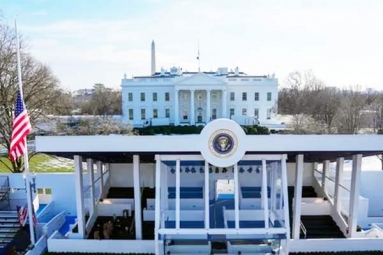Ramadan 2019: How Non-Muslim Countries Making It Plain Sailing for Muslims to Observe Month of Fasting
May 28, 2019 17:44
The holy month of Ramadan for more than 1.6 billion Muslims around the world is underway and the challenges faced by Ramadan observers in non-Muslim countries is immense.
What is Ramadan?
Ramadan, the month of fasting, prayer, and reflection for Muslims, is the ninth month of the Islamic lunar calendar, when Muslims believe the Holy Quran was revealed to Prophet Muhammad by the archangel Gabriel in the seventh century.
The month of Ramadan is the time when practicing Muslims refrain from all food, drink, smoking, and sex from sunrise to sunset. The endmost 10 days of Ramadan are considered the holiest.
However, Children and pregnant or breastfeeding women are exempt from fasting. Others who are old or ill can also forego fasting, but they must feed one poor person for each day of a missed fast, as per Islam.
Observance of Ramadan in Non-Muslim Countries
Fasting during Ramadan is considered a million times more difficult in a non-Muslim country than back home, where the Muslim population is predominant.
In the United States, about 80 percent of the estimated 3.2 million Muslims will fast during Ramadan, according to a 2017 Pew Research Center study. By contrast, a 2013 Pew study found 93 percent of Muslims in 39 countries and territories surveyed said they fast for the month.
Contrary to non-Muslim countries, most Muslim countries make it easier for people to fast. Across the Middle East, Ramadan must be observed publically, meaning, even non-Muslims must refrain from eating, drinking and smoking in public. Most cafes, eating places and clubs are closed during the day although some hotels serve food in screened-in areas or through room service.
"Observing Ramadan as a minority has its challenges. But it is not significant enough to make it impossible to fast," says Naeem Baig of the Islamic Circle of North America. He says it is made easier because "people from other faiths generally are respectful and supportive towards their Muslim colleagues or neighbors."
Organizations such as the nonprofit Tanenbaum Center for Interreligious Understanding in the United States work with businesses to help them accommodate the needs of those observing Ramadan.
"Muslim employees observing Ramadan may be fasting during this period. Some may request scheduling accommodations and your company may find that more employees require space for prayer during this time," writes the group's deputy CEO, Mark Fowler, on its website.
He encourages his clients to avail themselves to the group's fact sheet regarding scheduling, dietary restriction, and greetings during Ramadan.
By Sowmya Sangam

















